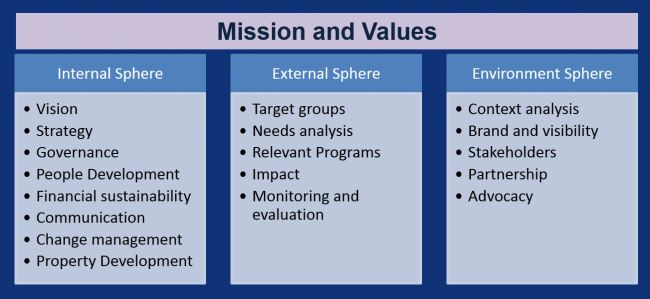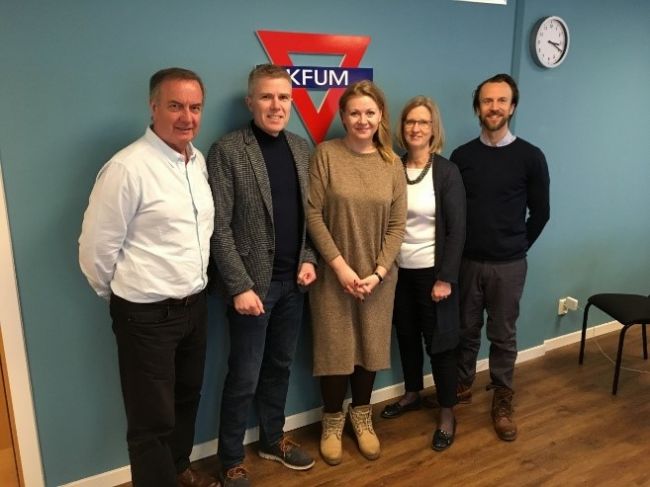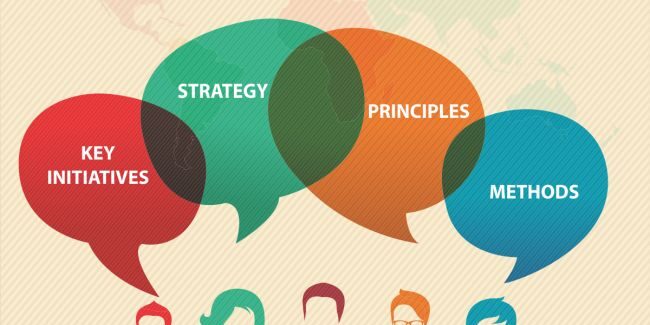MOVEMENT STRENGTHENING IS A KEY STRATEGIC PRIORITY OF YMCA EUROPE
A consensus around the importance of Movement Strengthening as a key strategic focus was achieved. It can be expressed in the following terms:
YMCA Europe contributes to strengthening National Movements by focusing on Mission Clarity, Relevant Programmes and Sustainability.
Movement Strengthening is the reason for the existence of YMCA Europe and what NMs expect from this working platform.
YMCA Europe Strategy “Towards 2020” indicates the following outcomes and key initiatives within the focus of Movement Strengthening:
- YMCA Europe understands and prioritizes the capacity and support needs of every national movement;
- YMCA Europe has evidence that each national movement is clear about its mission, is socially relevant and institutionally viable;
- YMCA Europe identifies resources for national movements development in Europe by working in cooperation with WAY and other YMCA alliances/partners;
- YMCA Europe identifies resources for youth leadership development.
So, Movement Strengthening within YMCA Europe focuses on building the capacity of national movements in their mission, social relevance, institutional viability, financial sustainability and leadership development. Constant cooperation of National General Secretaries, diagnostics of NMs, assistance of experts, coaching, Leadership Academy are the key activities for reaching this.
MOVEMENT STRENGTHENING AS A CONCEPT
Movement Strengthening is process of assistance National Movements in understanding and achieving desired changes in prioritized spheres of their work for the benefit of the target groups through self-analysis, empowerment of people and external expertise.

We provide some explanation for this definition:
- A process of assistance National Movements: it is important that a NM is ready for intervention and is going to put efforts for making organizational changes;
- in understanding and achieving desired changes: the process of movement strengthening will include not only organizational analysis but also intervention and further coaching;
- in prioritized spheres of their work: although we will use a holistic approach, we will have to prioritize the key areas for intervention so to be able to make the process realistic and measurable;
- through self-analysis, empowerment of people and external expertise: it means that the process of movement strengthening will include diagnostics, education and coaching of leaders of a NM, invitation of experts to provide needed knowledge;
- for the benefit of the target groups: it is important to understand that we strengthen movements so they become more capable and effective to create positive changes in their communities. It can be illustrated through the following scheme:
MOVEMENT STRENGTHENING = CAPACITY BUILDING
Using a holistic approach for movement strengthening, we understand that we need to take into account the development of 3 main spheres of a civil society organization (CSO):

PRINCIPLES OF YE FOR MOVEMENT STRENGTHENING
- Self-development of a NM with assistance of YE (no intervention without permission);
- Participation of key actors (not just 1-2 leaders);
- Long term process and holistic approach;
- Coaching as part of intervention;
- Flexibility and individual approach;
- Youth Empowerment as a focus of human resources development;
- Governance development as guarantee of sustainability;
- Change in NM for the sake of change of beneficiaries.
METHODS OF MOVEMENT STRENGTHENING
- Diagnostics through communication, Health Check, SWOT, PEST analysis and other methods which the Diagnostic Team will find appropriate;
- Educational activities (on-line and off-line);
- Coaching from experts and peers (mostly off-line through skype conversations, exchanging e-mails, etc.);
- Platforms, working groups, thematic meetings;
- YE Leadership Academy as a complementary event where participants receive most of the knowledge for movement strengthening process.
Y-CONSULTANTS
This is a pool of YMCA experts in various topics.
YE will identify those experts who are competent in the following areas and have skills, experience to transfer their knowledge to other people through educational events and meetings (on-line and off-line):
Mission & identity: YMCA history and mission, key documents (Paris Basis, Kampala principles, Challenge 21, current strategies of YMCA Europe, World YMCA), role of a CSO in a community, mission of a NM, values of a NM, “Theory of Change” of a NM, etc.
Social Relevance: target groups and their needs, needs assessment, needs assessment by a community, vulnerability, vulnerability analysis, relevant programs, etc.
Strategic Planning: mission and values review, “target groups oriented approach” in strategic planning, external strategic priorities, relevant programs, internal strategic priorities, indicators, operational plan, etc.
Governance: role of a CSO in a community, democratic principles and human rights based approach in a CSO, governance vs management, structure of governing bodies in a CSO, functions of governing bodies, division of power, risks of absence of strong governance, key documents of a CSO, etc.
People development: motivation, work with volunteers, work with staff, management of human resources, youth empowerment, coaching leadership, talent development, change management as a competency, etc.
Communications & marketing: effective communication, internal and external communication, key message of a CSO, image and brand, social media marketing (SMM), etc.
Financial development: fundraising (public & private; European, national, local), diversification of resources, successful project application, project management, etc.
Property development: venue development planning, business planning, calculation of costs of services, management and governance, legal aspects, strategic partnership with a local community, image of a venue, staff management, etc.
Impact measurement: “results oriented approach” in planning, indicators, means of verification, monitoring, evaluation, impact assessment, etc.
Advocacy & representation: advocacy concept, political system of David Easton, duty bearers and rights holders, levels of participation, structure of local, national and European government; steps of decisions making, policy papers, campaigning, negotiations, building partnership, etc.
Partnership: strategic partnership, “win-win strategy”, stakeholders, partners, donors, risks of working with no partners, identifying your partners, negotiations, “rules” of strong and effective partnership, etc.
TERMS OF REFERENCE FOR MOVEMENT STRENGTHENING COMMITTEE
Main functions of the MS Committee (extract from ToR):
- To encourage National Movements to engage and participate in the process of Movement Strengthening.
- To create a strategy and platform for Movement Strengthening with a complete package of tools to support the process.
- To assist National Movements (NMs) in the early stages of their strategic planning cycle.
- To analyse Health Check questionnaires returned from NMs and give them feedback.
- To ensure the appropriate selection of the “Y Consultants” team.
- To visit NMs where requested and assist them in self analysis and understanding their crucial areas for development.
- To monitor and evaluate the process of Movement Strengthening and report accordingly.
- The MSC can initiate and run other initiatives in the area of programmes, studies and research to ensure an efficient and collaborative process of Movement Strengthening.
- The MSC publishes and promotes all international YMCA events in Europe on an annual basis.
- To input into YE’s Executive Committee in agreeing any changes to the strategy on Movement Strengthening.
The current members of the Movement Strengthening Committee are:
Paul Smillie, England, Chair
Tomas Torfason, Iceland
Aron Wangborg, Sweden
Anne Linsey, England
Alexey Kostiakov, Russia

YE would love to hear opinions of NMs which themes and tools will be the most relevant nowadays for them.
You can express your opinion by e-mailing to Olga Lukina: olga[at]ymcaeurope.com
By filling in the COVID-19 Survey
By filling in the Health Check for 2019
We are going to run the next round of the Health Check for 2020 at the beginning of 2021.







